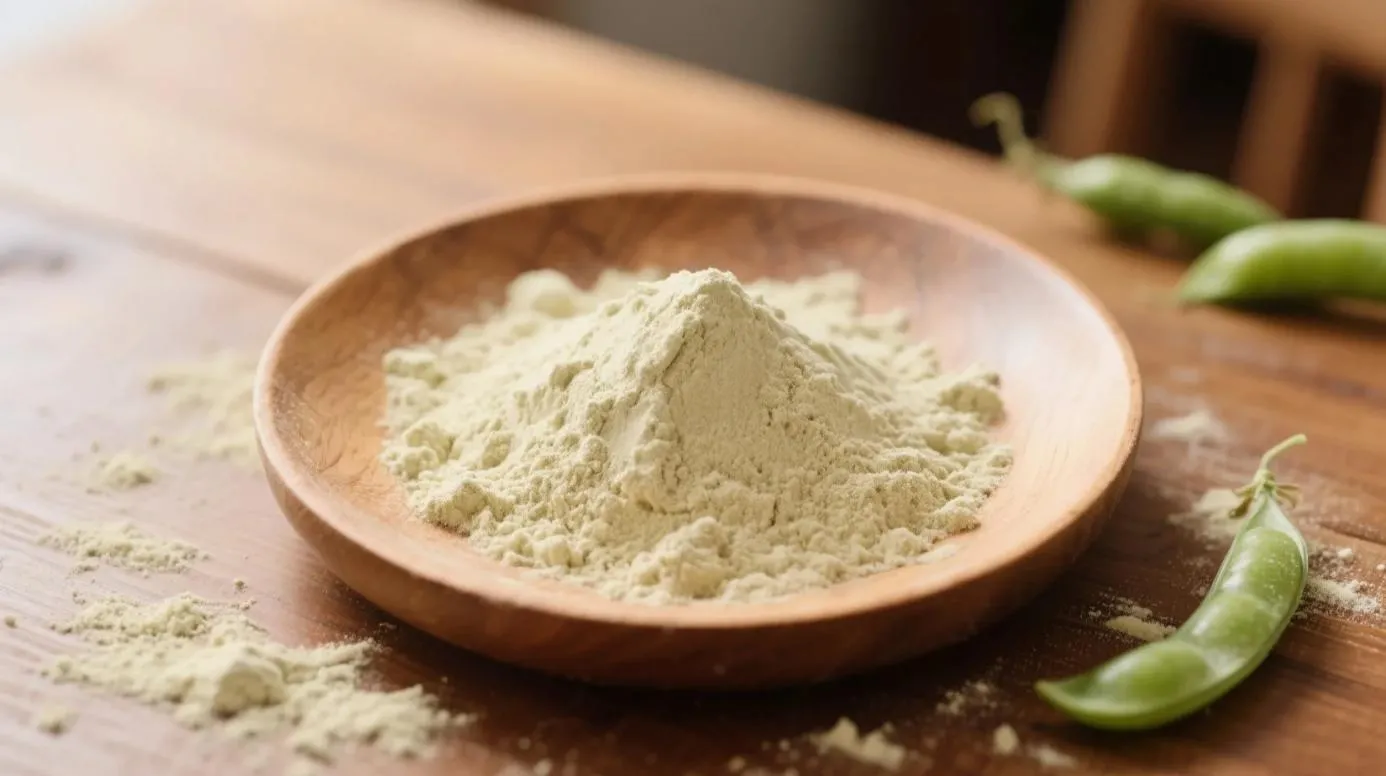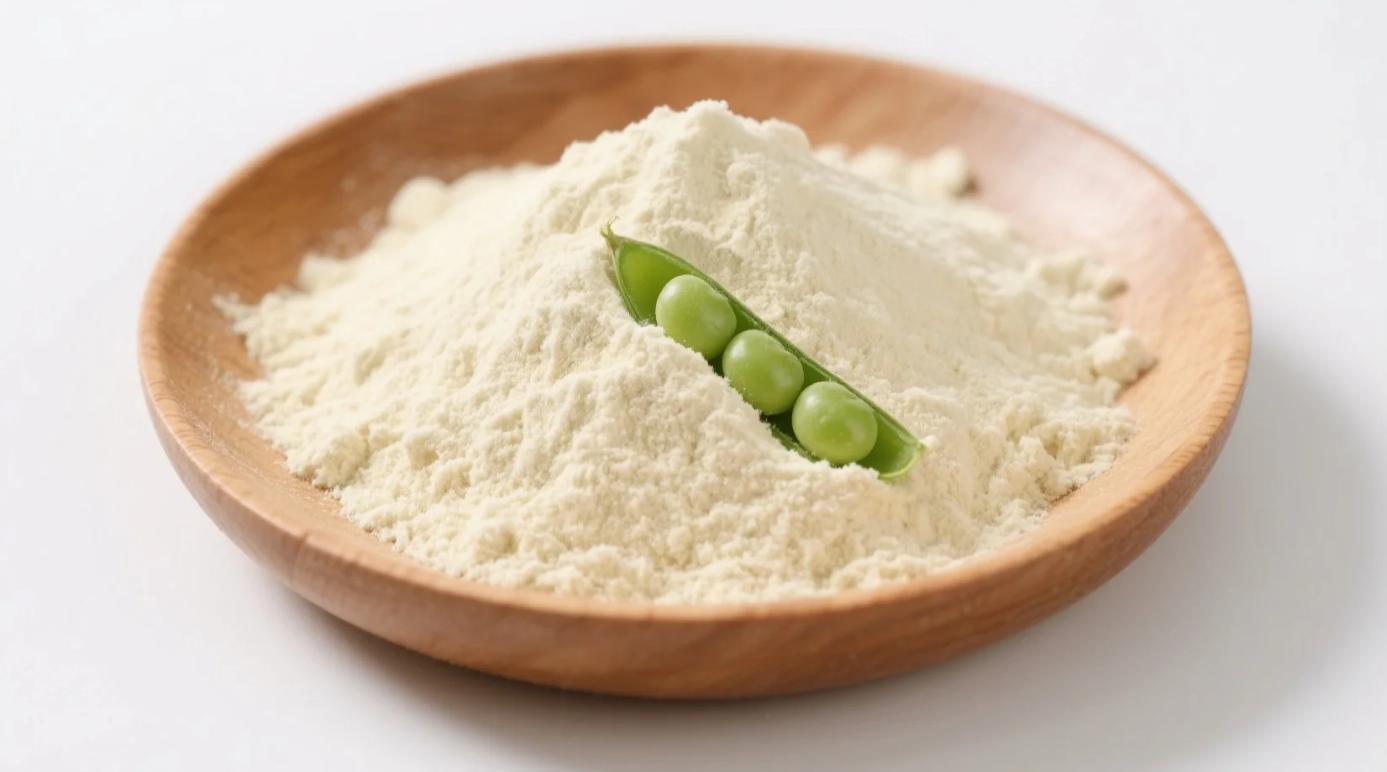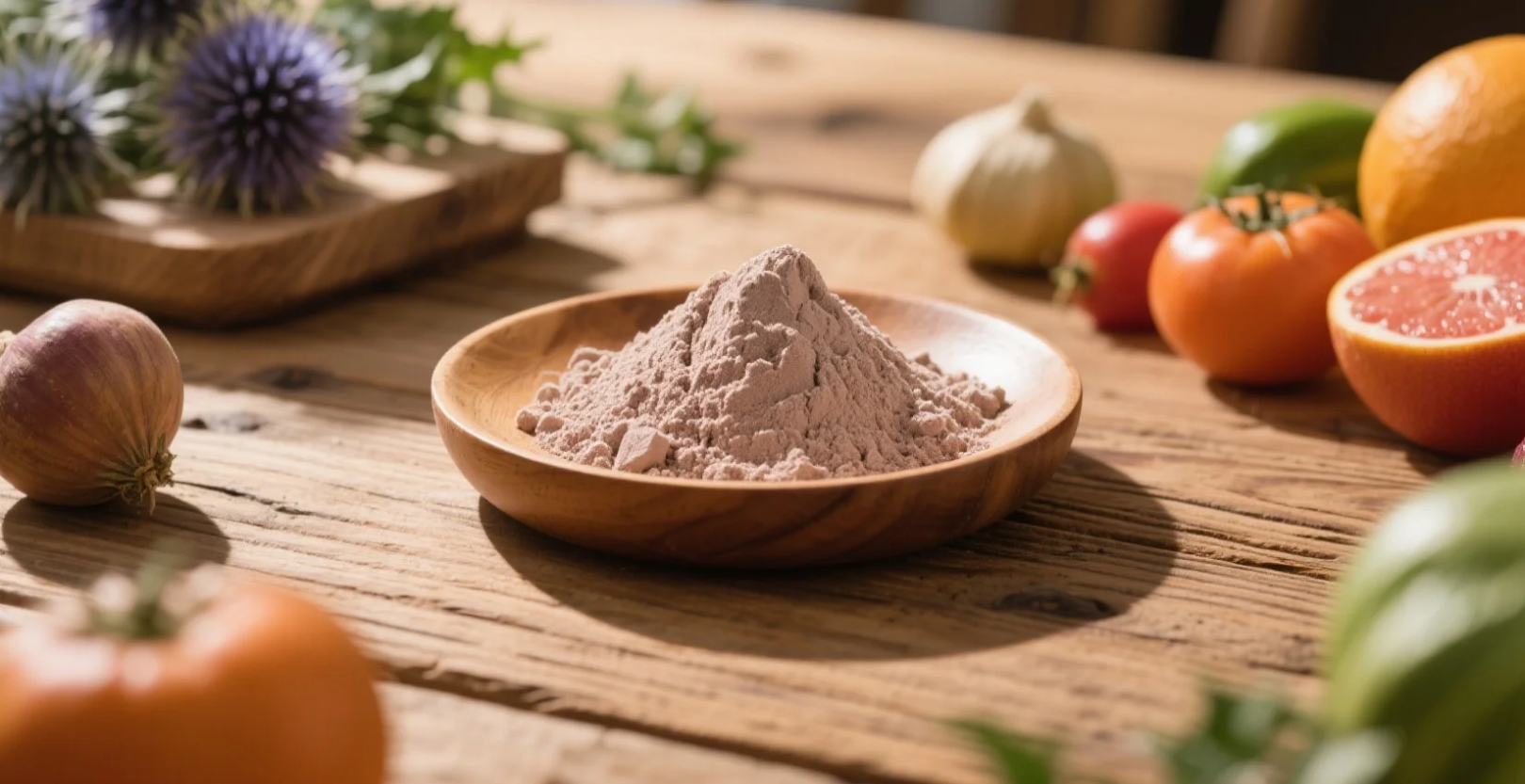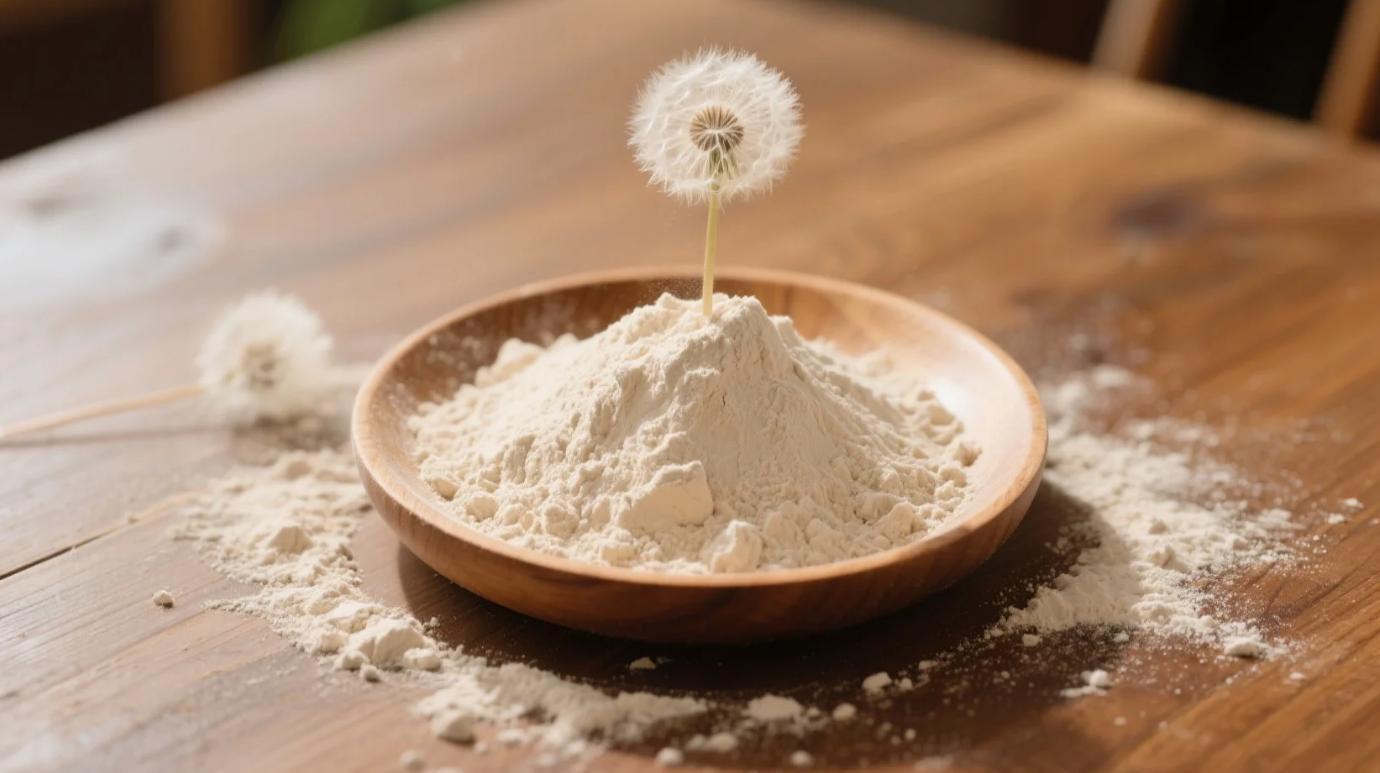Table of Contents
Peas are more than just a humble vegetable—they’re a powerhouse of plant-based nutrition. But when it comes to pea-derived supplements, confusion often arises: What’s the difference between organic pea protein and organic pea fiber? Let’s break down their roles, benefits, and why both deserve a spot in your wellness toolkit.

Pea Protein vs. Pea Fiber: A Quick Comparison
| Feature | Organic Pea Protein | Organic Pea Fiber |
|---|---|---|
| Source | Extracted from yellow peas’ protein content | Derived from the fibrous hulls of peas |
| Primary Nutrient | High protein (80–90% per serving) | Rich in dietary fiber (85–95% per serving) |
| Key Benefits | Muscle repair, satiety, vegan protein source | Digestive health, blood sugar control, cholesterol management |
| Texture/Use | Fine powder for shakes, bars, meat alternatives | Coarse or fine powder for baking, smoothies, fiber supplements |
| Caloric Content | Higher (calories from protein) | Very low (minimal calories) |
What Is Organic Pea Protein?
- Role: A complete protein containing all 9 essential amino acids, ideal for muscle growth and recovery.
- Uses:
- Post-workout shakes
- Plant-based meat substitutes
- Protein-enriched baked goods
- Best For: Athletes, vegans, or anyone boosting protein intake.
What Is Organic Pea Fiber?
- Role: A soluble and insoluble fiber blend that supports gut health and metabolic function.
- Uses:
- Adding bulk to gluten-free breads or low-carb recipes
- Thickening soups, sauces, or smoothies
- Enhancing digestive supplements
- Best For: Those improving digestion, managing weight, or balancing blood sugar.
Health Benefits Spotlight
Organic Pea Protein
✅ Muscle Maintenance: Leucine-rich for stimulating muscle synthesis.
✅ Heart Health: Lowers LDL cholesterol due to bioactive peptides.
✅ Allergy-Friendly: Gluten-, dairy-, and soy-free.
Organic Pea Fiber
✅ Gut Health: Feeds beneficial gut bacteria, reducing bloating and constipation.
✅ Blood Sugar Control: Slows glucose absorption, aiding diabetics.
✅ Cholesterol Management: Binds to bile acids, promoting excretion.
Can They Work Together?
Absolutely! Combine organic pea protein and pea fiber for a balanced nutritional boost:
- Protein-Fiber Smoothie: Blend pea protein, pea fiber, almond milk, and berries.
- Baking Combo: Use both in energy bars for muscle fuel and sustained energy.
Why Choose Organic?
Non-organic pea products risk contamination from pesticides like glyphosate. Certified organic pea fiber and protein ensure:
✅ No synthetic chemicals or GMOs
✅ Higher nutrient retention (organic farming enriches soil minerals)
✅ Eco-friendly production (reduced water and carbon footprint)
Who Should Prioritize Pea Fiber?
- Digestive Issues: IBS, constipation, or gut dysbiosis.
- Low-Carb/Keto Diets: Adds fiber without carbs.
- Bakers: Improves texture in gluten-free or vegan recipes.
The Verdict
While organic pea protein fuels your muscles, organic pea fiber nourishes your gut and metabolic health. They’re not competitors—they’re complementary allies in a holistic diet.
Ready to Harness the Power of Peas?
Whether you’re blending, baking, or boosting your meals, our certified organic pea fiber and pea protein deliver purity and performance.
Try them today and plant the seeds of better health—naturally!Peas are more than just a humble vegetable—they’re a powerhouse of plant-based nutrition. But when it comes to pea-derived supplements, confusion often arises: What’s the difference between organic pea protein and organic pea fiber? Let’s break down their roles, benefits, and why both deserve a spot in your wellness toolkit.
Pea Protein vs. Pea Fiber: A Quick Comparison
| Feature | Organic Pea Protein | Organic Pea Fiber |
|---|---|---|
| Source | Extracted from yellow peas’ protein content | Derived from the fibrous hulls of peas |
| Primary Nutrient | High protein (80–90% per serving) | Rich in dietary fiber (85–95% per serving) |
| Key Benefits | Muscle repair, satiety, vegan protein source | Digestive health, blood sugar control, cholesterol management |
| Texture/Use | Fine powder for shakes, bars, meat alternatives | Coarse or fine powder for baking, smoothies, fiber supplements |
| Caloric Content | Higher (calories from protein) | Very low (minimal calories) |
What Is Organic Pea Protein?
- Role: A complete protein containing all 9 essential amino acids, ideal for muscle growth and recovery.
- Uses:
- Post-workout shakes
- Plant-based meat substitutes
- Protein-enriched baked goods
- Best For: Athletes, vegans, or anyone boosting protein intake.
What Is Organic Pea Fiber?
- Role: A soluble and insoluble fiber blend that supports gut health and metabolic function.
- Uses:
- Adding bulk to gluten-free breads or low-carb recipes
- Thickening soups, sauces, or smoothies
- Enhancing digestive supplements
- Best For: Those improving digestion, managing weight, or balancing blood sugar.
Health Benefits Spotlight
Organic Pea Protein
✅ Muscle Maintenance: Leucine-rich for stimulating muscle synthesis.
✅ Heart Health: Lowers LDL cholesterol due to bioactive peptides.
✅ Allergy-Friendly: Gluten-, dairy-, and soy-free.
Organic Pea Fiber
✅ Gut Health: Feeds beneficial gut bacteria, reducing bloating and constipation.
✅ Blood Sugar Control: Slows glucose absorption, aiding diabetics.
✅ Cholesterol Management: Binds to bile acids, promoting excretion.
Can They Work Together?
Absolutely! Combine organic pea protein and pea fiber for a balanced nutritional boost:
- Protein-Fiber Smoothie: Blend pea protein, pea fiber, almond milk, and berries.
- Baking Combo: Use both in energy bars for muscle fuel and sustained energy.
Why Choose Organic?
Non-organic pea products risk contamination from pesticides like glyphosate. Certified organic pea fiber and protein ensure:
✅ No synthetic chemicals or GMOs
✅ Higher nutrient retention (organic farming enriches soil minerals)
✅ Eco-friendly production (reduced water and carbon footprint)
Who Should Prioritize Pea Fiber?
- Digestive Issues: IBS, constipation, or gut dysbiosis.
- Low-Carb/Keto Diets: Adds fiber without carbs.
- Bakers: Improves texture in gluten-free or vegan recipes.
The Verdict
While organic pea protein fuels your muscles, organic pea fiber nourishes your gut and metabolic health. They’re not competitors—they’re complementary allies in a holistic diet.
Ready to Harness the Power of Peas?
Whether you’re blending, baking, or boosting your meals, our certified organic pea fiber and pea protein deliver purity and performance.
Try them today and plant the seeds of better health—naturally!
Recommended Product
Organic Pea Fiber
A pure, functional dietary fiber sourced from organic peas, ideal for boosting fiber content and…


